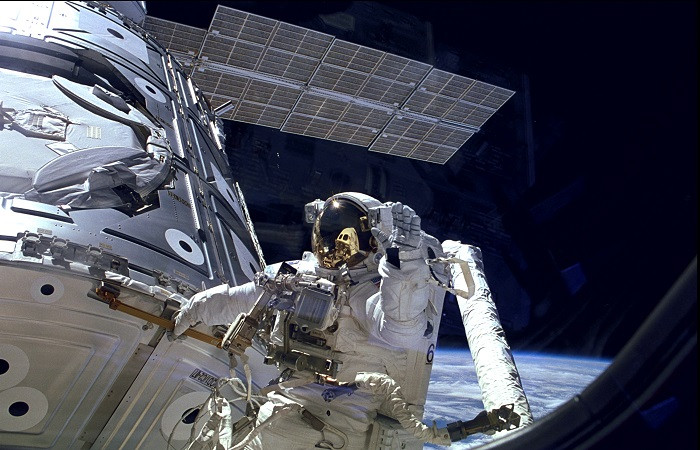Russian Scientists Discover Marine Life in Space
Cosmonauts claim to have found microscopic organisms on the exterior of the International Space Station

Russian scientists have claimed to have discovered traces of marine life on the exterior of the International Space Station (ISS).
Vladimir Solovyev, head of the Russian ISS orbital mission, told Russian news agency Itar-Tass that tiny plankton and microscopic organisms were discovered living on the spacecraft's exterior surface.
Scientists reportedly made the "absolutely unique" discovery when they took samples from the spacecraft's windows.
The discovery confirms that some organisms can live on the surface of the ISS for years in conditions of zero gravity and cosmic radiation, Itar-Tass reported.
Solovyev said the marine microbial organisms, which are a source of food for several sea creatures, are not native to the Russian mission's blast-off site in Kazakhstan, and could have been "uplifted" to the station at an altitude of 420km.
"Plankton in these stages of development could be found on the surface of the oceans," he said.
"This is not typical for Baikonur [in Kazakhstan]. It means that there are some uplifting air currents which reach the station and settle on its surface."
Discovery not confirmed
A spokesman for Nasa declined to confirm the discovery. "As far as we're concerned, we haven't heard any official reports from our Roscosmos (Russia's Federal Space Agency) colleagues that they've found sea plankton," he told Space.com.
"The Russians did take samples from one of the windows on the Russian segment and what they're actually looking for is residue that can build up on the visually sensitive elements, like windows, as well as just the hull of the ship itself that will build up whenever they do thruster firings for things like re-boosts.
"That's what they were taking samples for. I don't know where all the sea plankton talk is coming from."
Nasa scientist Lynn Rothschild said the plankton, if confirmed, could be a contaminant launched into space with the space station module.
© Copyright IBTimes 2025. All rights reserved.





















